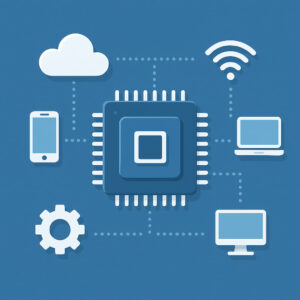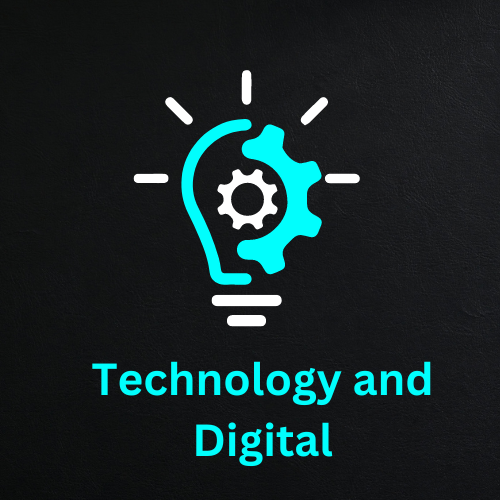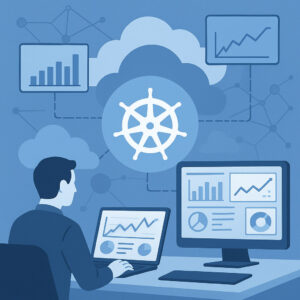The Rise of Edge Computing Bringing Power Closer to You

Modern applications demand speed, responsiveness, and efficiency. Edge computing delivers on those demands by shifting computation closer to where data is generated, reducing latency and improving performance. In 2025, edge computing is no longer experimental — it’s an essential layer in many systems. This article explores how edge computing works today, real-world use cases, practical tips for adoption, and challenges ahead.
What Is Edge Computing?
From Cloud to Edge
Traditional cloud computing centralizes processing in distant data centers. Edge computing decentralizes that: computation, storage, and analytics happen nearer to the source, such as in local servers, gateways, or even devices themselves.
Key Components of Edge Architecture
- Edge devices or sensors (IoT nodes)
- Edge gateways or micro data centers
- Cloud or central backend (for aggregation, deeper analytics)
These layers cooperate: the local edge layer handles immediate tasks while the cloud handles heavy lifting or historical analysis.
Why Edge Computing Matters in 2025
Ultra‑Low Latency and Real-Time Decisions
Applications like autonomous vehicles, industrial automation, or augmented reality demand decisions in milliseconds. Edge computing makes those split‑second responses possible by processing data right where it’s produced.
Bandwidth Savings and Cost Efficiency
Sending every bit of data to distant clouds is costly. Edge filtering and pre‑processing reduce bandwidth usage, lower costs, and reduce data transit bottlenecks.
Resilience and Offline Capability
When connectivity drops, edge nodes can continue to function independently. That makes systems more resilient in remote or connectivity-challenged environments.
Key Use Cases of Edge Computing
Smart Cities and Traffic Management
Traffic sensors, cameras, and edge nodes collaborate to detect congestion, control traffic lights dynamically, and improve urban flow. Decisions happen locally, not waiting on the cloud.
Industrial Automation and IIoT
Factories use edge computing to monitor machinery, detect anomalies in real time, and trigger preventive maintenance. Downtime is cut; productivity climbs.
Healthcare and Remote Monitoring
Wearables, medical sensors, and local edge nodes can process vital signs instantly and raise alerts without needing to communicate with distant servers. Lives can depend on that speed.
AR/VR and Gaming
High-framerate AR/VR systems need minimal latency. Edge servers located near users offload rendering tasks, boosting immersion and responsiveness.
How Edge Computing Works: A Step‑by‑Step Scenario
Imagine a factory floor with robotic arms, vibration sensors, and cameras. Here’s how edge computing might operate:
- Sensors collect vibration, temperature, and image data continuously.
- Edge gateway or microserver receives raw data in milliseconds.
- Algorithms locally analyze sensor data to detect abnormal vibrations or overheating.
- If an anomaly is found, local actions trigger—shut down machine, alert an operator.
- Summaries and trends are sent to the cloud for long‑term analytics and reporting.
This hybrid model ensures fast reactions locally while enabling deeper insights globally.
Benefits and Challenges: What to Weigh
Major Benefits
- Speed and responsiveness
- Reduced bandwidth and cost
- Better privacy and security (sensitive data stays local)
- Fault tolerance in disconnected environments
Key Challenges
- Device management at scale — many nodes to maintain
- Security complexity across edge, gateway, and cloud
- Data consistency and synchronization issues
- Limited compute resources on edge nodes
These challenges require strategic planning, robust architecture, and smart monitoring.
Best Practices for Adopting Edge Computing
Start with a Pilot Project
Begin by deploying edge in a controlled environment — one factory line, one city block, or one clinic. Measure benefits, hit issues early, then scale.
Design for Modularity
Use containerization (e.g., Docker) or microservices so edge applications can be updated independently and rolled out across devices.
Ensure Security from the Start
Encrypt data in transit and at rest. Use zero trust models. Harden edge nodes against intrusion. Deploy consistent identity and access policies across the entire stack.
Implement Monitoring and Remote Management
Edge nodes must be monitored continuously. Use lightweight agents that report health, metrics, and alerts. Set up remote update capability so nodes can receive patches or new logic securely.
Emerging Trends in Edge Computing
AI at the Edge (TinyML)
Small machine learning models are being pushed directly into edge devices—TinyML allows real‑time inference locally without cloud dependencies.
Edge-to-Edge Collaboration
Edge nodes are beginning to communicate with each other (peer to peer), sharing data and enabling coordinated responses without central coordination.
Convergence with 5G and Beyond
With widespread 5G and upcoming 6G, high bandwidth and low latency networks support richer edge applications. Edge locations tie into mobile towers and network slices for local processing.
When Not to Use Edge Computing
Edge computing is powerful but not a one-size-fits-all solution. Consider staying with cloud or hybrid models when:
- Workloads are heavy compute with minimal latency sensitivity
- Device count is low and central cloud is already sufficient
- Managing distributed nodes introduces more complexity than benefit
Always match architecture to real needs, not hype.
Future Outlook: What’s Next in Edge?
Edge and cloud will increasingly blend into a continuum—sometimes called “distributed cloud.” Intelligent orchestration will place workloads dynamically between edge, cloud, and even user devices depending on metrics like latency, cost, and reliability. This fluid layer of compute will power smarter cities, immersive experiences, and AI-informed systems.
Conclusion
Edge computing is not just a buzzword in 2025 — it’s a foundational piece of modern architecture. By bringing processing closer to where data is created, it empowers real-time systems, saves bandwidth, and strengthens resilience. The journey to adopt edge involves thoughtful planning: begin small, secure fiercely, and monitor ceaselessly. In doing so, systems can benefit from speed and locality without losing the advantages of centralized analytics and cloud scale.
What applications in your field could benefit from edge computing? Explore ideas, test prototypes, and share results with peers. The edge frontier is wide open—step forward and shape it.




